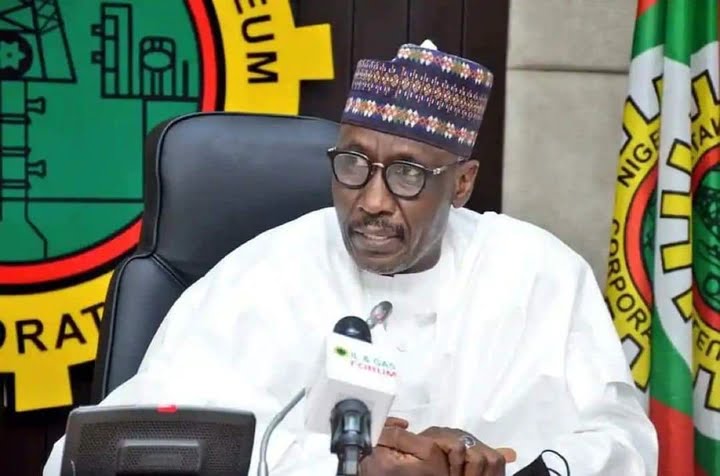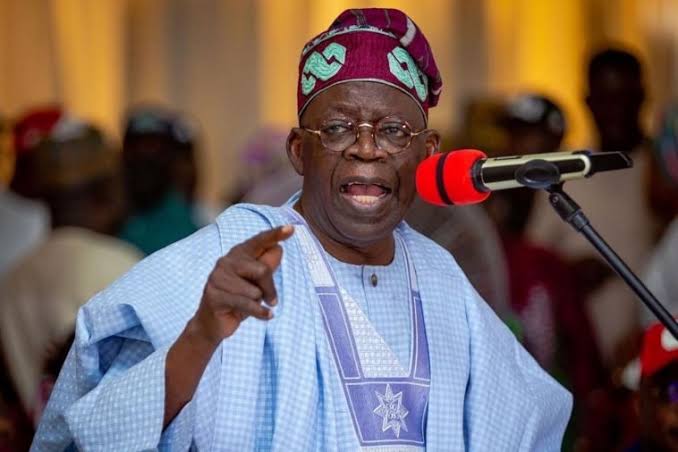NNPC: Looking Beneath The Sustained Disinformation Charade
Sahara Weekly Reports That There is a steady and sustained dispensation of disinformation about Mele Kyari, the Group Chief Executive Officer of the Nigerian National Petroleum Company Limited. But, what did Kyari do to upset the apple cart? Is he a victim of his success? What could he have done to offend those attempting to obliterate his catalogue of achievements, and hanging him out to dry as an economic saboteur?

There is a frightening volume, velocity, and variety of campaigns of calumny against Mele Kyari, the Group Chief Executive Officer of the Nigerian National Petroleum Company Limited, NNPC.
In the past couple of weeks especially, a deluge of disingenuous disinformation, dilettante opinion articles and editorials, blog posts, and even tweets has been unleashed, underpinning the consensus that ‘Project Batter, Bruise, Bash, and Boot Out Kyari’ is in motion and has become the sun around which the daily to and fro of the masterminds revolves.
Given his successful turnaround records in the NNPC, it would have been easy to say that the masterminds are on a wild goose chase. However, a lie left unchallenged for too long may be taken as the Holy Grail.
The oil and gas industry is Nigeria’s cash cow and has churned out substantive and emergency billionaires. Before it transitioned into a limited liability company, the legacy corporation, NNPC, was regarded as the cash dispenser (Automated Teller Machine) of successive Nigerian governments.
Oil theft and pipeline vandalism were the order of the day with the resultant effect on production. Over the years, billions of naira went down the drain in the name of reviving the comatose refineries while the corporation was never known to remit revenue to the federation account.
Nigerians have not forgotten how former Governor of the Central Bank of Nigeria, Sanusi Lamido Sanusi, caused nationwide panic when he said that $20 billion in oil revenue had not been accounted for. It was the reign of flagrant impunity, opacity, and corruption.
Then came Mele Kyari, the University of Maiduguri-trained geologist. He superintended the corporation’s transition into a limited liability company and has been steering its ship adroitly since then.
In two years, the NNPC has grown from a loss-making position to a profit-making entity. The days of opacity are over with the introduction of the Transparency, Accountability, and Performance Excellence (TAPE) initiative, which occasioned the publication of the Monthly Financial and Operations Reports (MFOR), underscoring the corporation’s commitment to transparency, accountability, and open dialogue that are fundamental to building public trust.
The TAPE initiative, Kyari said, “places NNPC in a unique position globally as the only national oil company that publishes its financial and operations reports every month. Such transparency not only enhances accountability but also provides valuable insights into NNPC’s activities, performance, and strategic direction.”
Further, Kyari enlisted the NNPC l with the global transparency body, Extractive Industries Transparency Initiative (EITI), a Norway-based organisation that seeks to establish international standards for the good governance of oil, gas, and mineral resources while addressing the key governance issues in the extractive sectors.
In its recent global assessment of the NNPC, the EITI scored the corporation high for enhanced transparency and accountability standards, increased competitiveness, and concerted efforts in combating corruption in the global oil, gas, and mining sectors.
He also instituted a broad range of reforms including collaborating with security agencies and private security contractors while also establishing a control centre known as the Central Coordination, Data Integration, and Activation Control Room to provide surveillance of all the country’s oil and gas assets in the Niger Delta.
The NNPC Data Control Centre uses video visibility to monitor the pipeline networks in the Niger Delta where more than 90 per cent of the country’s crude is explored.
Kyari has vowed to get the Kaduna, Port Harcourt, and Warri refineries working optimally again, promising that Nigeria will become a net exporter of petroleum when they are rejuvenated. He has also led the charge in reducing the impact of the fuel subsidy removal on Nigerians with the implementation of the Presidential Compressed Natural Gas (CNG) initiatives launched by President Tinubu to provide cheaper alternative fuel to motorists, stimulate the economy, and reduce carbon footprints.
Despite this catalogue of achievements, Kyari continues to be blackmailed, vilified, and scapegoated by the oil mafia who want the old days of flagrant impunity and milking of Nigeria’s commonwealth to return.
Nigeria’s economy is slowly rebounding after tailspinning into an abyss due to bad management. But the recovery pace has been further slowed down by the forces that want to hang Kyari out to dry.
He has been accused of sabotaging the Dangote Refinery by not meeting up with its crude oil supplies. But he denied the allegation saying the law is clear on domestic crude oil supply obligations and providing for local refineries.
“(The) Refining business is a straightforward business. You must secure (a source for) your feedstock and you must find a market. This is basic and this determines what happens in any refinery anywhere in the world. That is the business of refining. We have done nothing to sabotage any domestic refinery,” Kyari stated.
While appearing before an ad hoc senate committee on August 7, Kyari declared that the attacks were deliberate and calculated to create the impression that the NNPC and its leadership are creating economic sabotage in the country, saying, “And all of us see what is happening in the media – targeted personal attack on my person, on the institution, and we all know how this works.”
On the alleged importation of sub-standard products into the country, Kyari said the NNPC Limited has nothing to do with that as the relevant regulatory agencies will, by law, not allow any sub-standard product into the country.
The most recent attack came from the regional newspaper, Daily Trust, which jumped on the obnoxious bandwagon with the editorial, last Monday, “NNPC Must Go,” asking rather astonishingly, “Is the NNPC a state-owned enterprise, a public service provider like a university or yet, a private company like Innoson Motors? Or is the NNPC all three at once?” Even a kindergarten pupil knows that after about 45 years of operating as a fully-owned government company, the NNPC was transformed into a limited liability company in July 2022 as the only entity licensed to operate in the country’s petroleum industry. And, it has been operating as such for the past two years, and profitably and transparently too.
It is one of three things – either Kyari is a victim of his success, a soft target for the prevailing economic hardship, or he is merely a personification of the aphorism; uneasy lies the head that wears the crown. Whatever it is, the damaging disinformation needs to stop immediately in the interest of Nigeria.
SOURCE: pmexpressng.com

 Business6 months ago
Business6 months ago
 celebrity radar - gossips6 months ago
celebrity radar - gossips6 months ago
 Politics6 months ago
Politics6 months ago
 Entertainment4 months ago
Entertainment4 months ago












